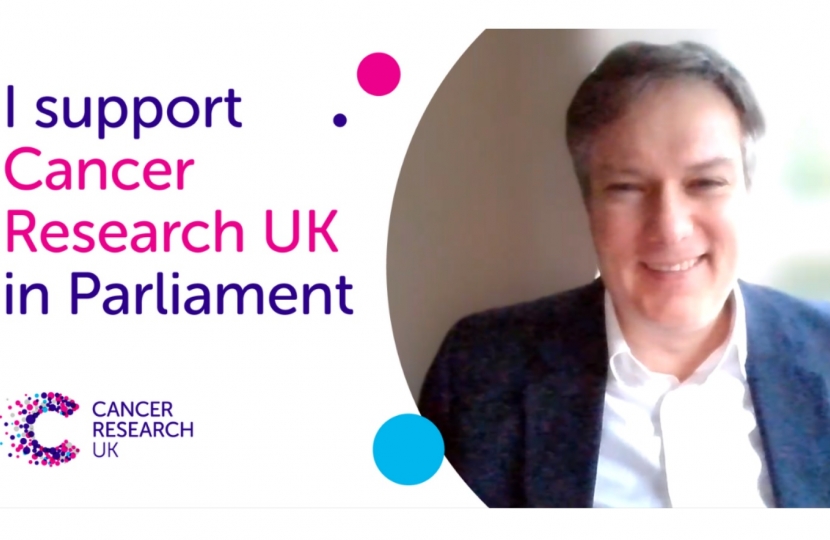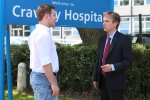
To mark World Cancer Day earlier this month I was pleased to have a virtual meeting with Cancer Research UK. Usually such events take place in a room in the Palace of Westminster with Members of Parliament coming and going throughout the course of the day, speaking with representatives of the charity and hearing the stories of patients and people living with cancer.
This year’s event of course took place remotely, with briefings on-screen replacing the in-person face-to-face conversations.
Covid-19 has affected every walk of life, with one of its most devastating effects being the consequences on cancer services.
Cancer Research UK have found that 2020 saw 40,000 fewer people starting cancer treatment across the United Kingdom. This figure looks specifically at treatment and is largely driven by a fall in the number of people who were diagnosed with cancer last year, which is a cause for concern in itself. Diagnosis of cancer at an earlier stage means a greater chance of survival.
Currently, 2 in 4 people survive their cancer for at least 10 years. I share the ambition of Cancer Research UK to see progress continue so that by 2034, 3 in 4 people will survive their cancer for at least a decade.
The upcoming Budget is an important opportunity for Government to clarify how it will target funding announced last year to clear the cancer backlog.
I recently met the Prevention, Public Health & Primary Care Minister to highlight issues brought forward by the Catch Up With Cancer campaign led by Radiotherapy4Life.
In addition to the need to ensure that no further cancer treatments and referrals are postponed due to the pandemic, Crawley is the home to several leading manufacturers whose radiotherapy scanners play an important role in improving oncology patient outcomes.
While it is welcome that treatments such as radiotherapy as well as chemotherapy have not seen major disruption during the most recent wave of Covid, there cannot be any complacency.
During the national lockdown it is right that we stay at home and protect the NHS. At the same time, we must not forget that the NHS is there to protect us when we need it. This of course includes noticing signs and symptoms of cancer and contacting your GP.
With more than a quarter of all UK adults having now received their first Covid vaccine it is vital that there are no further delays to cancer services and the improvement of patient outcomes.
Henry Smith MP


